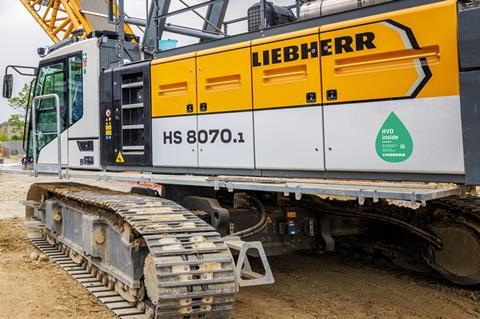Liebherr’s factory in Nenzing, Austria, has been filling all its new machines with hydrogenated vegetable oil (HVO) fuel during assembly, with CO2 neutrality the driving factor for the change.

HVO is a synthetically produced fuel that is mainly obtained from vegetable and animal oil as well as fat waste from food. These are then converted into hydrocarbons with the addition of hydrogen.
The hydrocarbons produce up to 90 percent less CO2 emissions during combustion when compared to diesel and other fossil fuels, said Liebherr.
According to Liebherr, 300,000 litres of diesel and 810 tonnes of CO2 emissions will be saved each year at the Liebherr factory in Nenzing – representing a 20 percent reduction in direct CO2 emissions at the site. HVO can be mixed with fossil diesel in any proportion and can be used with standard combustion engines, so most machines in Liebherr’s fleet can be operated immediately with HVO.
HLPFI reported last month that Liebherr had supplied rope winches for Mammoet’s SK6000 crane.
















